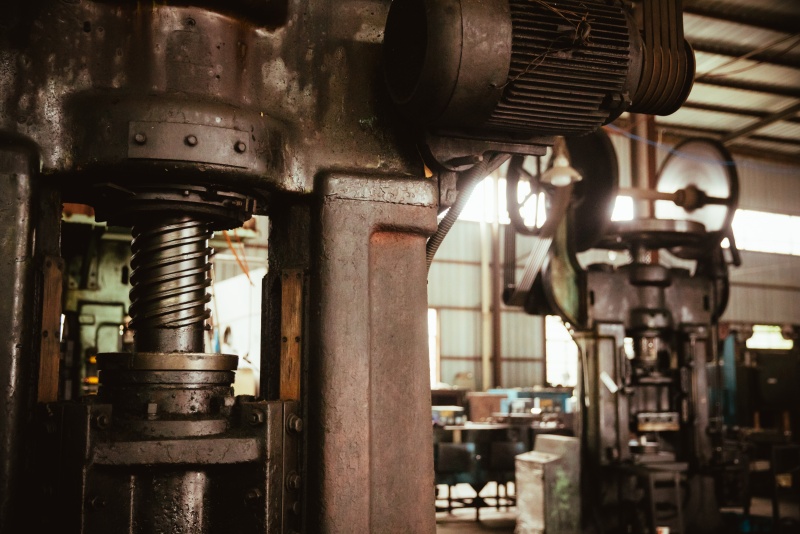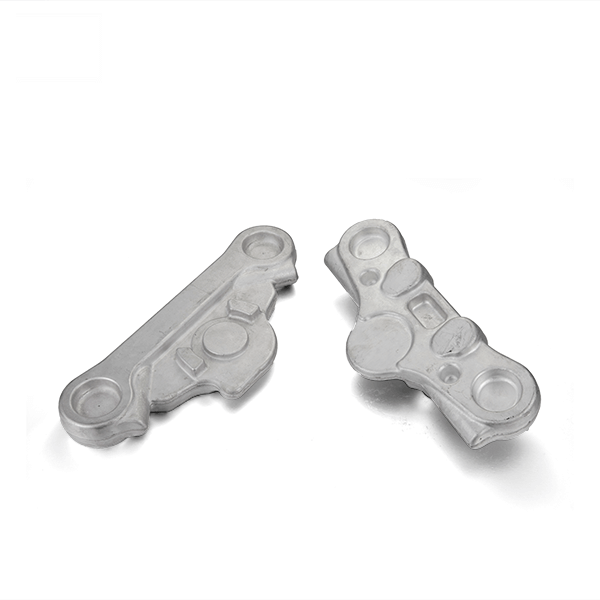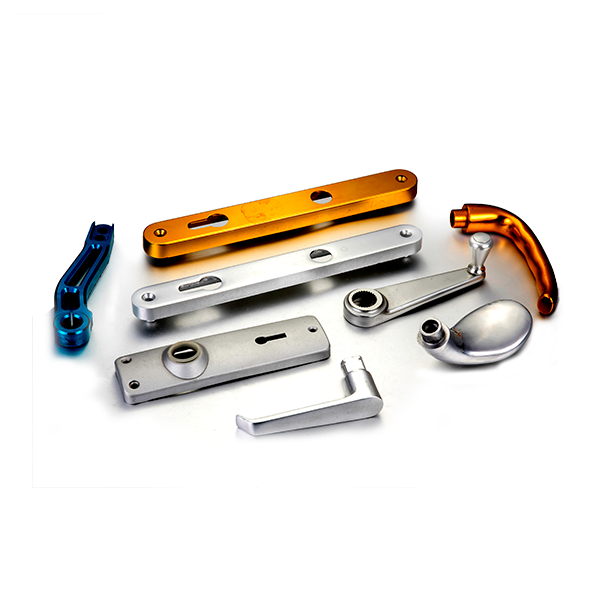What is Aluminum Hot Forging and How It Works
Aluminum hot forging involves heating aluminum to high temperatures and shaping it under immense pressure. This process enhances the material's strength and durability, making it ideal for creating precise components. Industries increasingly rely on this technique due to its ability to produce lightweight, high-performance parts while meeting sustainability regulations. Ningbo Jiangbei Xinye Metal Products Co., Ltd. specializes in delivering superior aluminum hot forging solutions tailored to modern manufacturing needs.

Key Takeaways
• Aluminum hot forging makes the material stronger and tougher. It changes the grain structure, making it great for tough jobs.
• This process uses less material and lowers production costs. It saves money over time by being efficient.
• Aluminum hot forging creates detailed shapes with great accuracy. It is used in industries like cars and airplanes.
The Aluminum Hot Forging Process
Preparation: Material selection and pre-forging steps
The preparation phase lays the foundation for successful aluminum hot forging. It begins with selecting the correct aluminum alloy. Each alloy offers unique properties and requires specific forging temperatures. Managing the temperature of the aluminum billet is equally important. Frequent monitoring ensures the material remains within the optimal range for its alloy. Using the right equipment, such as a forging press or hammer with appropriate tonnage, guarantees precision during the process. Collaborating with experienced companies like Ningbo Jiangbei Xinye Metal Products Co., Ltd. can streamline this stage. Their expertise helps manufacturers choose the best alloy, equipment, and temperature settings for their projects.
Heating: Temperature range and its role in the process
Heating aluminum to the correct temperature is critical for achieving the desired results. The optimal range for aluminum hot forging lies between 700℃ and 800℃. This range ensures the material becomes ductile enough to deform without cracking. Proper temperature control prevents defects like folds or fractures, which can compromise the quality of the final product. Maintaining this range also enhances the aluminum's ability to withstand the high pressures applied during forging.
Forging: Applying pressure to shape aluminum
Forging involves shaping the heated aluminum billet by applying immense pressure. Hydraulic and mechanical presses are commonly used for this purpose. These machines ensure precise shaping by compressing the aluminum between forging dies. The controlled application of pressure allows manufacturers to create components with intricate designs and consistent dimensions. This step is where the material's strength and durability are significantly enhanced.
Post-Forging: Cooling, finishing, and quality assurance
After forging, cooling the aluminum is essential to stabilize its properties. Common cooling techniques include oil cooling, water cooling, and air cooling. Oil and water cooling methods rapidly absorb heat, making them ideal for complex or large components. Air cooling, on the other hand, provides a natural and gradual cooling process. Once cooled, the components undergo finishing processes like polishing, coating, or plating to improve their surface quality and resistance to wear. Quality assurance follows, involving heat treatments, surface inspections, and non-destructive testing to ensure the components meet industry standards. Ningbo Jiangbei Xinye Metal Products Co., Ltd. employs rigorous quality checks to deliver reliable and high-performance aluminum hot forging products.
Benefits of Aluminum Hot Forging
Enhanced strength and durability
Aluminum hot forging significantly improves the mechanical properties of aluminum components. The process refines the grain structure through recrystallization, resulting in increased strength and enhanced microstructure. Components produced through this method exhibit superior fatigue resistance, making them ideal for applications requiring high performance under cyclic loading.
• Forged aluminum parts are stronger than cast aluminum due to their refined grain structure.
• The forging process aligns the grain structure with the component's shape, enhancing both strength and durability.
• Compressive forces eliminate porosity and voids, ensuring reliable and long-lasting components.
These characteristics make aluminum hot forging a preferred choice for industries like automotive and aerospace, where durability is critical. Ningbo Jiangbei Xinye Metal Products Co., Ltd. specializes in producing high-strength forged aluminum components tailored to meet demanding industry standards.
Reduced material waste and cost-effectiveness
Aluminum hot forging minimizes material waste by recycling flash material and producing minimal scrap. This process is highly efficient, generating a large number of products with negligible waste. Additionally, aluminum's recyclability makes it an environmentally sustainable option.
|
Aspect |
Benefit |
| Reduced Manufacturing Costs | Produces highly finished parts with good surface finish, reducing the need for post-operations like machining, welding, and heat treatment. Overall manufacturing cost is reduced. |
Despite initial setup costs, aluminum hot forging offers long-term savings through high production rates and material efficiency. Ningbo Jiangbei Xinye Metal Products Co., Ltd. ensures cost-effective solutions without compromising quality, making it an excellent choice for businesses seeking sustainable manufacturing.
High design flexibility and manufacturing precision
Aluminum hot forging provides unmatched design versatility. The process allows manufacturers to create components with intricate shapes, sizes, and designs while maintaining high dimensional accuracy. Aluminum's shrinkage-free nature during forging ensures precise dimensions, which is essential for intricate components.
• Capable of producing complex shapes with high precision.
• Enhances the strength of aluminum alloys by aligning their microstructure.
• Produces finished parts with excellent surface quality, reducing the need for additional operations.
Ningbo Jiangbei Xinye Metal Products Co., Ltd. leverages advanced forging techniques to deliver components with exceptional precision and reliability, meeting the diverse needs of modern industries.
Applications of Aluminum Hot Forging


Automotive industry: Lightweight and durable parts
Aluminum hot forging plays a vital role in the automotive industry by producing lightweight and durable components. This process is particularly effective for creating geometrically complex parts, such as suspension systems, using closed-die forging. Forged aluminum suspension components are among the lightest available, reducing unsprung mass and improving vehicle response and comfort. Additionally, aluminum hot forging enhances fuel efficiency and overall performance by lowering the vehicle's weight.
Common automotive parts manufactured through this method include:
• Wheel hubs, especially for heavy vehicles
• Bumpers and base beams
• Engine parts, drivetrain components, and suspension systems
Ningbo Jiangbei Xinye Metal Products Co., Ltd. specializes in delivering high-quality forged aluminum parts tailored to meet the automotive industry's demands for strength, precision, and efficiency.
Aerospace industry: High-performance components
The aerospace industry relies on aluminum hot forging to produce high-performance components that meet stringent requirements. This process creates lightweight parts with excellent strength-to-weight ratios, enabling them to endure high stress while remaining light. Forged aluminum components also exhibit superior fatigue resistance and corrosion resistance, making them ideal for harsh environments.
Typical aerospace components include:
• Fuselages, wings, and landing gear
• Structural parts designed for maximum efficiency
Ningbo Jiangbei Xinye Metal Products Co., Ltd. provides aerospace-grade aluminum forgings that meet the industry's rigorous standards for safety and performance.
Other industries: Construction, electronics, and more
Beyond automotive and aerospace, aluminum hot forging serves various industries, including construction and electronics. In construction, forged aluminum components contribute to lightweight yet durable structures. In electronics, this process enables the production of intricate parts with high precision, ensuring reliability in advanced devices. Ningbo Jiangbei Xinye Metal Products Co., Ltd. offers versatile forging solutions to cater to these diverse industrial needs.
Aluminum Hot Forging vs. Other Forging Methods
Comparison with cold forging: Key differences
Aluminum hot forging and cold forging differ significantly in their processes and outcomes. Each method offers unique advantages depending on the application.
• Cold Forging: This process shapes aluminum at room temperature. It requires lower pressure and produces parts quickly with minimal waste. Cold forging is ideal for creating intricate designs without scaling, making it suitable for components requiring high precision and smooth surface finishes.
• Hot Forging: This method involves heating aluminum to its recrystallization temperature, typically between 350°C and 500°C. The elevated temperature enhances the material's ductility, allowing for the creation of lightweight components with superior strength-to-weight ratios. Hot forging also enables a variety of surface finishes and is particularly effective for producing durable parts that can withstand high stress.
While cold forging excels in speed and precision, hot forging stands out for its ability to improve the mechanical properties of aluminum, making it the preferred choice for industries requiring high-performance components.
Advantages of hot forging for aluminum
Hot forging offers several advantages over cold forging, particularly for aluminum components. The process facilitates plastic deformation at elevated temperatures, which triggers recrystallization. This refines the grain structure, enhancing the material's toughness, ductility, and yield strength.
Key benefits of hot forging include:
• Improved strength-to-weight ratio, surpassing that of steel.
• Greater design flexibility, allowing for the production of complex shapes.
• Enhanced surface finish options, which can be more aesthetically pleasing.
• Cost-effectiveness due to reduced need for additional machining or finishing operations.
Additionally, hot forging is highly efficient in material usage, generating minimal scrap. This efficiency, combined with the superior quality of the forged components, makes it an excellent choice for industries like aerospace and automotive. Ningbo Jiangbei Xinye Metal Products Co., Ltd. leverages advanced hot forging techniques to deliver strong, reliable, and precision-engineered aluminum components tailored to meet diverse industrial needs.
Aluminum hot forging remains a cornerstone of modern manufacturing, offering unmatched efficiency and precision. The process minimizes material waste, enhances mechanical properties, and ensures dimensional accuracy. Industries like automotive and aerospace benefit from its ability to produce lightweight, durable, and corrosion-resistant components. Ningbo Jiangbei Xinye Metal Products Co., Ltd. continues to lead in delivering high-quality forged aluminum solutions tailored to diverse industrial needs.
FAQ
What is the main advantage of aluminum hot forging over other methods?
Aluminum hot forging enhances strength and durability by refining the grain structure. Ningbo Jiangbei Xinye Metal Products Co., Ltd. ensures precision and reliability in every forged component.
How does Ningbo Jiangbei Xinye Metal Products Co., Ltd. ensure quality in aluminum hot forging?
The company employs rigorous quality checks, including surface inspections and non-destructive testing, to deliver high-performance aluminum components that meet industry standards.
Can aluminum hot forging produce complex shapes?
Yes, aluminum hot forging allows for intricate designs with high dimensional accuracy. Ningbo Jiangbei Xinye Metal Products Co., Ltd. specializes in creating complex, precision-engineered components for diverse industries.
Post time: Jan-16-2025
